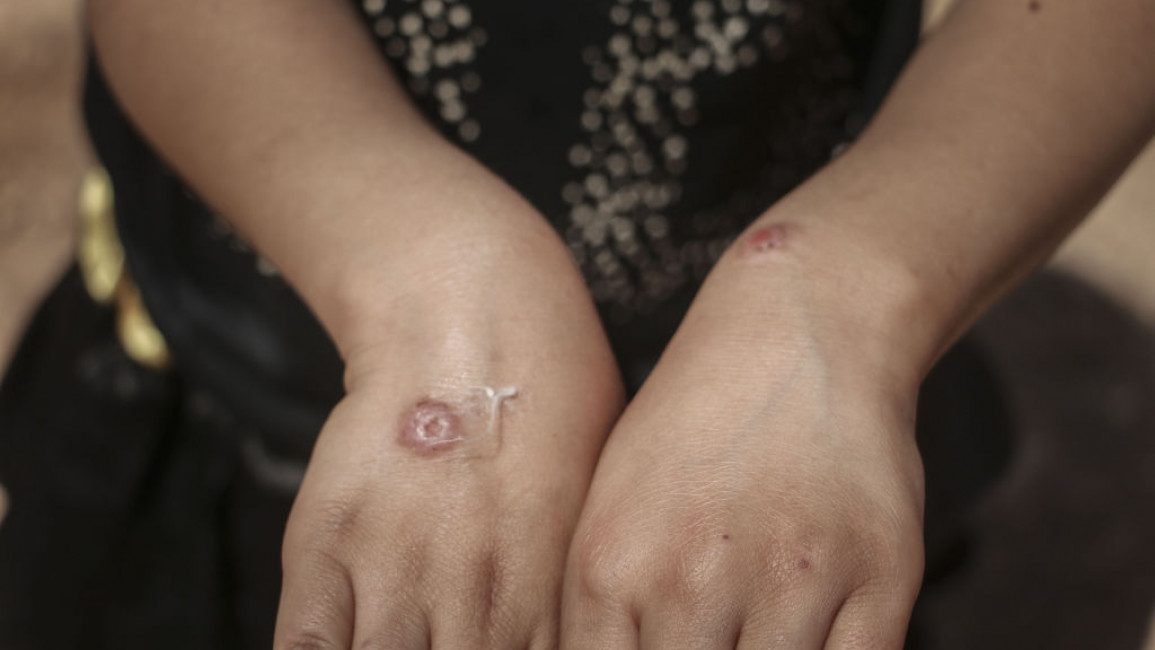'Aleppo boil' disease resurges in northeast Syria, infects thousands
Cases of a disease known as "Aleppo boil" have soared across northeast Syria in recent months due to a lack of insecticides, according to a member of the Kurdish Red Crescent, a local medical NGO.
The disease, officially named Leishmaniasis, is caused by a microscopic parasite spread by sandflies which creates ulcers and, in some cases, can attack the internal organs of its victims.
Since the beginning of August, about 16,400 cases have been reported in villages near the Al-Khabour River, the largest tributary of the Euphrates in Syria, Sky News reported.
The Al-Khabour, through which water usually flows year-round, has dried up. Kurdish-led authorities in northeast Syria say Turkey has repeatedly cut the river off upstream, and the region has suffered two years of low rainfall.
In the river's place are a landfill, open sewage, and stale water swamps, providing an ideal environment for the flies that carry the parasites.
"We tried every remedy... different treatments and ointments but they all didn't work out," Shamsa Khalil Alloush, whose son suffered from the disease, told Sky News.
"We ran out of money as we sold all our sheep and can't cover treatment expenses anymore," Alloush said.
Health education teams have stepped up their awareness campaigns of the disease following its increase, according to the Kurdish Red Crescent, which provides medical and humanitarian aid to people affected by conflict in northeastern Syria.
The teams show people how to protect themselves from the disease and how to seek treatment from Kurdish Red Crescent points if infected.
Prevalence of the disease has sky-rocketed due to a lack of intervention, according to field hospital nurse and Kurdish Red Crescent member Hanoud Shahr Ibrahim.
"I believe that we need to radically address the problem by using insecticide... The disease wouldn't have spread if those insecticides were used at the right beginning," Ibrahim told Sky News.
She said the NGO has asked other organisations to provide it with insecticides, which have proven effective in preventing the spread of the disease in the past.
"Last year, we had almost no cases because they [insecticides] were used, reporting only eight cases. Whereas there are currently 16,500 reported cases since the first of August," Ibrahim said.
Leishmaniasis was first discovered in patients in the northern Syrian city of Aleppo in the 18th century. It is found in some parts of Asia, Africa, and southern Europe.



